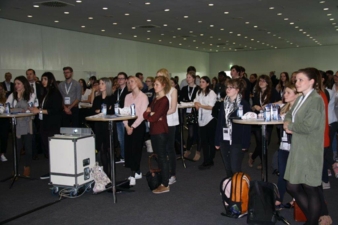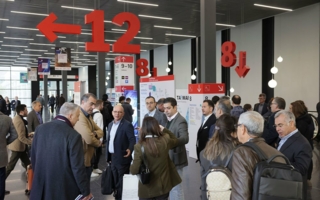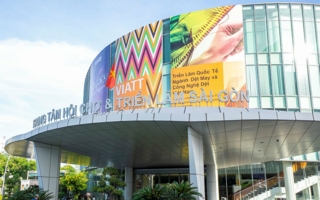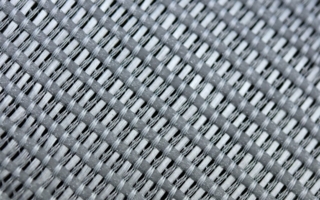09/06/2017 – IVGT — auf Deutsch lesen
Good atmosphere at Techtextil
Over 35% of textiles producers, across all stages of the manufacturing process, were positive in their expectations for sales over the next six months.
This year’s trade exhibition in Frankfurt inspired the whole industry. After a 4.8% increase in foreign sales, German companies were reporting even before the trade fair a rise in domestic turnover of 5.5% over the previous year. At the beginning of the fair, over 35% of textiles producers, across all stages of the manufacturing process, were positive in their expectations for sales over the next six months. 52% of IVGT members (IVGT - Germany's largest textile association) expected the situation to remain unchanged. According to a survey of visitors by Messe Frankfurt, 42% of them rated the current competitive position as good. This is also supported in surveys by the Federal Statistical Office, which show that orders for technical textiles in March were 20.1% higher than at the same time last year.
For the third time now, the IVGT invited students from German textiles universities to an informative lunch event during Techtextil. The room in Hall 4.2, made available free of charge by the fair organisers, rapidly filled up with over 430 attendees from technical universities in Albstadt-Sigmaringen, Hof/Münchberg, Kaiserslautern, Mönchengladbach, Reutlingen, Zwickau and from the University of Aachen.
Now that the subjects of smart textiles and sustainability have become almost universal in university syllabuses, the Association presented developments over the period from 1890 to the present day, by means of seven short films. Even in the early days, vibrantly coloured textiles were used for advertising and display purposes. The possibilities offered by today’s e-textiles, however, go way beyond that. In fields of application such as medical technology and sport, in particular, conductive textiles act as sensors for measuring bodily functions, as channels for muscular stimulation or as an element of therapy for stroke victims.
The second topic, sustainability, was introduced by four member companies using current and brand new developments in non-woven fabrics. Demand for recyclable and renewable raw materials has until recently been something of a challenge for producers, since the primary concern with technical textiles is functional capability. Two producers of filament yarns presented their latest developments, which meet both requirements, and two other member firms gave presentations on the use and finishing of these types of special yarns. Following the lunch, many students accepted companies’ invitations to their stands in the exhibition halls. In response to the positive feedback, there will be another ‘info-lunch’ at the Frankfurt Techtextil in 2019.




